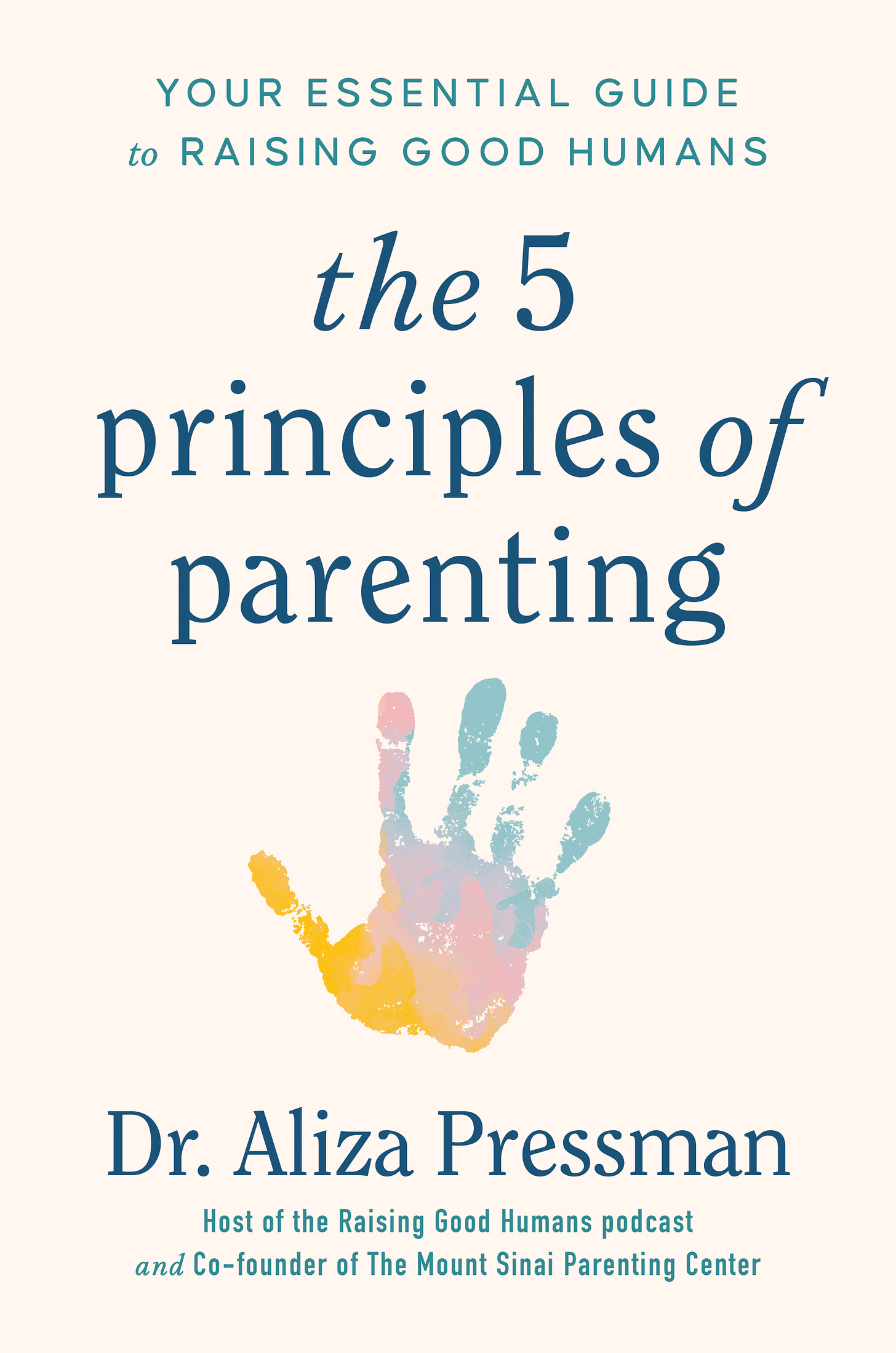Thanks for reading Raising Good Humans on Substack! My first book, The Five Principles of Parenting: Your Essential Guide to Raising Good Humans is now available for preorder here. All pre-orders will allow for access to exclusive LIVE events and will be eligible for exclusive bonus content this Fall. I am SO GRATEFUL for you and SO excited to get this book out into the world!

“Dear Dr. Aliza, Every time I try to tell my child ANYTHING, he acts like I am punishing him and says, “Why are you being so mean to me?” I try so hard to be a sensitive, thoughtful, and kind parent, so this kills me! I am definitely not being mean or yelling, but I have to tell him to do things and correct him sometimes, right? Help!”
We have all been there. You’ve just asked your child to do something perfectly reasonable. Something developmentally appropriate, logical, and well within their abilities. Maybe it’s to pick up their towel and hang it back up, or shut the screen off for dinner time. You’ve asked nicely, calmly, simply. And then…the dreaded response we have all received... “Why are you being so mean?” or, “Why are you yelling at me?” Now, let’s just assume you weren’t yelling or being mean (if you were, check out this post)... then what?
First off, and while this may be obvious and an easy one to forget, our children don’t always have to be happy with what we ask of them. It isn’t our job to make them feel happy all of the time, and it isn’t their job to be excited about the limits and guidance we give them. We are charged with having developmentally and temperamentally appropriate expectations of them that help them to grow, in addition to being loving and supportive. That is an essential part of having a balanced parenting style (also known as the authoritative approach).
Next, we have lots of evidence that our children need to have guardrails (also known as limits) to teach them about how to act in this world, what is expected of them, and to show them the edges of acceptable behavior (note: how you define this will be uniquely based on your own values and expectations). And while it is essential we provide these limits, it is not essential that our children agree with all of them, or embrace them. We can’t rely on our children to innately know what appropriate expectations are, or how to regulate their behavior independently. That is something we teach each day as we help them to navigate the world around them. Our work as parents is to provide opportunities for them to grow those regulation muscles, so they can make choices about how they move through the world in the future.
Finally, remember that we can be sensitive to our childrens’ reactions without adjusting our expectations. Before we start to backpedal when we hear our children say things like, “You’re so mean,” we can provide support. Try saying something like, “I understand you don’t want to go to sleep because you’re having fun. I still need to make sure you get rest, so time is up.” Or, “I understand it doesn’t feel nice to be asked to do something you don’t want to do. I know you can put that towel back on the hook, but you do not need to like doing it.” Acknowledging, validating, and accepting your child’s feelings does not mean you need to fix the feelings. Instead, try staying steady and remaining confident in your decision, and don’t confuse your child’s reaction with your own limits.
A quick reminder to pre-order my first book, The Five Principles of Parenting! In it, I’m helping you to translate science into everyday challenges, and when you pre-order you get special benefits - including a virtual seminar, and custom content specifically made for you. AND when you pre-order, you are helping me SO MUCH. Every single person who pre-orders the book, helps book sellers and shops to see that demand is high and convince them to stock The Five Principles of Parenting on their shelves. I need your help to make sure that happens, and so I promise special benefits to make it worth taking the lap to pre-order today.






100% agree!